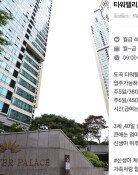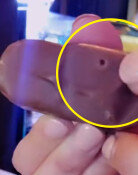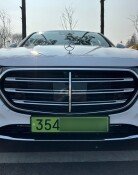Will Pres. Park`s U.S. visit bring good news regarding KFX, TPP, and THAAD?
Will Pres. Park`s U.S. visit bring good news regarding KFX, TPP, and THAAD?
Posted October. 09, 2015 07:22,
The Korea-U.S. summit to be held in Washington on Oct. 16 will inarguably be a determinant of success or failure of the Park Geun-hye administration`s diplomacy. As the U.S. and Japan are going hand in hand to confront China, Korea needs diplomatic power to maximize its profit. The leaders of these countries should develop practical solutions on pending issues including the North Korean nuclear problem rather than only engaging in such rhetoric as an "airtight relationship."
Korean Defense Minister Han Min-gu will accompany the president`s U.S. visit. It is a rare case considering that normally the chairman of the Joint Chiefs of Staff accompanies the president to a foreign country rather than the defense minister, who usually stays in case of North Korean provocation. There are many military issues that the two countries to work on including the Korean Fighter Experimental (KFX) technology transfer and the Terminal High Altitude Area Defense (THAAD) missile deployment. But Minister Han seemed unconcerned about all these at the government inspection Thursday saying that THAAD was not an agenda and as for the KFX technology transfer. "I sent a letter (to request for cooperation) to U.S. Defense Secretary Ash Carter and will think about it after receiving a response that will come soon," Han said.
What good will the Korea-U.S. alliance do to us if we do not get to discuss anything about the KFX that should cover air defense in 10 years? Will it not become a "trash project" if the U.S. refuses to transfer the technology? Minister Han must accomplish the transfer even if it takes parleying with his U.S. counterpart. Discussions regarding THAAD should also not be avoided. It will be a serious dereliction not to provide solutions to the continuous debates within Korea as well as China`s outright opposition about the deployment. The leaders of Korea and the U.S. should be clear about the deployment to eliminate unnecessary misunderstanding between Korea, the U.S. and China.
The summit was originally scheduled in June but was delayed due to the MERS crisis. It is preceded by the U.S.-Japan summit in April and the U.S.-China summit in September. Greater challenges are presented to diplomacy by Japanese Prime Minister Shinzo Abe when he strengthened the military alliance with the U.S. through the revision of the U.S.-Japan Defense Cooperation Guidelines and concluded the Trans-Pacific Partnership (TPP), which will create the new trade order of the 21st century. The dialogues from the U.S.-China summit emphasized cooperation rather than intensified conflict.
Korea must have some tangible results from the summit in order to prevent the Korea-U.S. alliance`s weakening due to the strengthened alliance between the U.S. and Japan. As for the TPP, a straightforward dialogue should be made to obviate uncertainty surrounding the bilateral economic cooperation. President Park will also have to dispel worries on her participation in the September 3 Victory Day Military Parade in Beijing, which was seen as paying respect to China in the eyes of the U.S.
Headline News
- Med professors announce intention to leave hospitals starting Thursday
- Bridge honoring Sgt. Moon Jae-sik unveiled in Pennsylvania
- Chief of Staff Chung tells presidential secretaries to stay away from politics
- US FTC bans noncompete agreements
- N. Korea launches cyberattacks on S. Korea's defense companies







